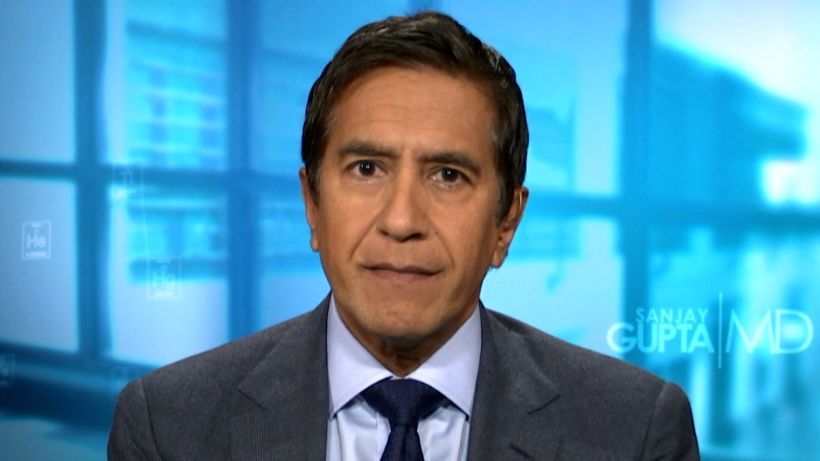There’s a likely association between the mRNA Covid-19 vaccines and rare cases of heart inflammation in adolescents and young adults, but the benefits of vaccination still clearly outweigh the risks, vaccine advisers to the US Centers for Disease Control and Prevention heard during a virtual meeting on Wednesday.
Cases of the heart conditions were rare – the CDC has received 1,226 preliminary reports of myocarditis and pericarditis following about 300 million doses of Pfizer and Moderna vaccines. Myocarditis is inflammation of the heart muscle and pericarditis is inflammation of the heart lining.
These preliminary reports are through June 11 and were reported to the Vaccine Adverse Event Reporting System maintained by the CDC and the US Food and Drug Administration. Among people 12 and older, there were 267 reports of inflammation after one dose of vaccine, 827 were after a second dose and 132 after an unknown dose.
The inflammation cases appeared to be mild, and they resolved quickly.
“Reassuringly the available outcome data indicates that patients generally recover from symptoms and do well,” CDC’s Dr. Tom Shimabukuro told the Advisory Committee on Immunization Practices, noting that information on long-term effects is still limited.
The US Food and Drug Administration expects to add a warning about risk of myocarditis and pericarditis to information sheets for the Covid-19 mRNA vaccines, Dr. Doran Fink from FDA’s Center for Biologics Evaluation and Research told the meeting.
Fink said warning statements for health care providers and vaccine recipients would include information to explain such events occurred several days to a week after vaccination, particularly after the second dose; that limited information is available about long-term effects; and that people who experience pericarditis or myocarditis symptoms should seek medical attention.
“We anticipate that following today’s ACIP meeting we would move rapidly to update the fact sheets with this information,” Fink said.
Benefits and risks
During Wednesday’s meeting, CDC researchers said the benefits of vaccination were clear. For every million second-dose vaccinations, there may be tens of myocarditis cases, but thousands of Covid-19 cases prevented, the CDC said.
The myocarditis risk is higher for boys than girls. Among adolescent boys ages 12 to 17, CDC researchers estimate that for every 1 million second-dose vaccinations, 5,700 Covid-19 cases, 215 hospitalizations, 71 intensive care unit admissions and two deaths would be prevented. It’s estimated there might be 56 to 69 myocarditis cases.
Among adolescent girls ages 12 to 17, CDC researchers estimate that for every 1 million second-dose vaccinations, 8,500 Covid-19 cases, 183 hospitalizations, 38 intensive care unit admissions and one death would be prevented. The researchers estimate there might be eight to 10 cases of myocarditis.
“In persons aged 18 to 24 years, the benefit-risk balance is more favorable,” CDC researcher Dr. Megan Wallace told ACIP.
Among men ages 18 to 24, CDC researchers estimate that for every 1 million second-dose vaccinations, 12,000 Covid-19 cases, 530 hospitalizations, 127 intensive care unit admissions and three deaths would be prevented. It’s estimated there might be 45 to 56 myocarditis cases.
Among women ages 18 to 24, CDC researchers estimate that for every 1 million second-dose vaccinations,14,000 Covid-19 cases, 1,127 hospitalizations, 93 intensive care unit admissions and 13 deaths would be prevented – and there might be four to five cases of myocarditis.
“Finally, in persons aged 24 to 29 years, the benefit-risk balance is even more favorable,” Wallace said. “And this trajectory continues with increased age.”
There are other benefits not included in those calculations, too: protection against variants and prevention of prolonged symptoms and MIS-C, a rare, serious Covid-19 complication where different parts of the body become inflamed.
During Wednesday’s meeting, CNN medical analyst Dr. Leana Wen, who is not associated with ACIP, posted to Twitter that those risk-benefit data were “key” graphs from the meeting. “Also, myocarditis occurs with covid too, which can cause many lasting health effects,” she tweeted.
‘This is an extremely rare side effect’
Following Wednesday’s discussion, a joint statement from the leaders of more than a dozen health agencies and organizations – including the US Department of Health and Human Services, the CDC, the American Academy of Pediatrics, the American Heart Association and others – said the Covid-19 vaccines are safe and effective. They “strongly encourage” everyone 12 and older to be vaccinated against Covid-19.
“The facts are clear: this is an extremely rare side effect, and only an exceedingly small number of people will experience it after vaccination. Importantly, for the young people who do, most cases are mild, and individuals recover often on their own or with minimal treatment. In addition, we know that myocarditis and pericarditis are much more common if you get COVID-19, and the risks to the heart from COVID-19 infection can be more severe,” the statement said.
“We recommend getting vaccinated right away if you haven’t yet. It is the best way to protect yourself, your loved ones, your community, and to return to a more normal lifestyle safely and quickly.”
Get CNN Health's weekly newsletter
Sign up here to get The Results Are In with Dr. Sanjay Gupta every Tuesday from the CNN Health team.
People with a history of heart inflammation can still receive any Covid-19 vaccine, the CDC said Wednesday. But those who have rare cases of myocarditis after the first dose of an mRNA Covid-19 vaccine should defer the second dose, the agency said in proposed vaccine guidance for clinicians shared during the meeting.
“It’s unclear how a person with a history of myocarditis after the first dose of an mRNA Covid vaccines may respond to a second dose,” CDC’s Dr. Sara Oliver said.
If the heart has recovered, a person can consider proceeding with the second dose, Oliver said; patients who choose to receive the second dose of an mRNA vaccine after myocarditis should wait until at least the first episode has resolved.
CNN’s Maggie Fox contributed to this report.



















